“I chose to participate in the coffee project to plan for the future of my children.” commented Wedia Gbabolo. Wedia was the only woman amongst the planters gathered to welcome the CEUM delegation to the Bobagalawa nursery and seedbed. The CEUM delegation included President Mboka, Renée Hale (Executive Director of Paul Carlson Partnership), Pascale (Café Africa technician and overseer), Cindy, me and a few others connected to the project. We went to see the newly established and planted (some) nurseries for the Karawa Coffee Project (KCP) economic development initiative.
Coffee seedbeds & discussion with CEUM visitorsAlong 4 axes branching out from Karawa, Bonudana, Bobadi, Bominenge and Bodokola, KCP has signed up planters, verified 20 sites for the nurseries, established 20 nurseries and completed much of the planting. All since January 23.
Some of the numbers involved:
- 1,347 farmers enrolled with various sizes of plots for coffee
- 87 villages involved
- 5 ha of coffee to be planted
- One platte-band (seedbed) per ha so 961.5 seedbeds
- 1,100 coffee bushes/ha
- 3 months after planting the seeds the young coffee seedlings will be transplanted into sacs in the nursery
- 6 months in the nursery and then planted out in the field
- First harvest starts after 3 years, full production in 5 years
- KCP has hired 5 agronomists, one to oversee each axe and one as the overall supervisor
Background. Coffee was a major commercial product in the area from the 1970s into the mid-90s when war and a disease ravaged the plantations. In its heyday tons of hulled Robusta coffee was shipped out of the area to Kinshasa and then around the world. As a source of revenue the apex of Congo’s exportation was in 1989 when it exported 119,320 tons of coffee. From that point on production started dropping as did exports to the point that in 2003 Congo only exported 7,162 tons.
Over the past couple years James Fischer, former economic development director for PCP, researched Cafe Africa and organized an initial assessment of the potential. Over the past year Renée Hale has pursued the conversation with Café Africa, the CEUM and an interested donor. The result is a new 3-way partnership between the CEUM, Café Africa (the implementing partner) and PCP (the financial partner).
Café Africa’s commitment is
- to train farmers to properly grow, prune and harvest coffee
- to train growers to prepare the coffee for sale
- to set-up local growers associations for support
- to help with marketing the coffee by training the associations to function as cooperatives
The CEUM, PCP and Café Africa believe that this initiative has great potential to improve the local economics in the years to come. Improving the economic situation of local farmers will in turn benefit local churches. Read more about Café Africa on their website: www.cafeafrica.org
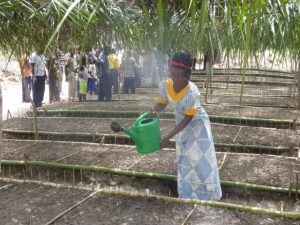
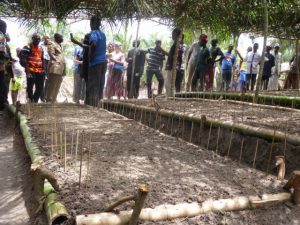
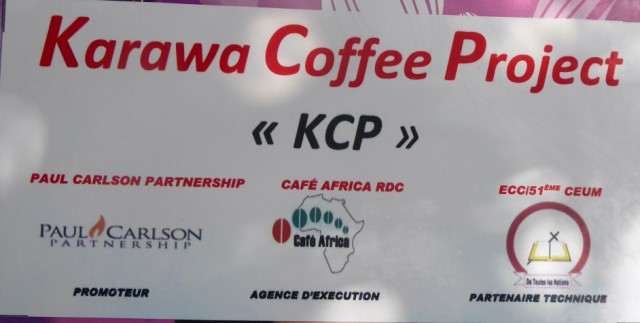
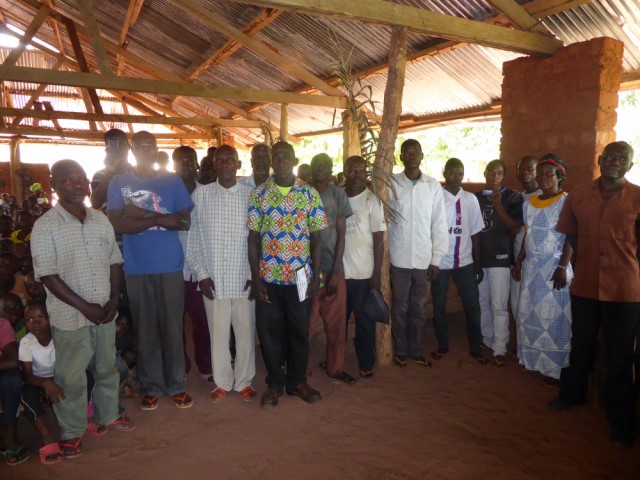
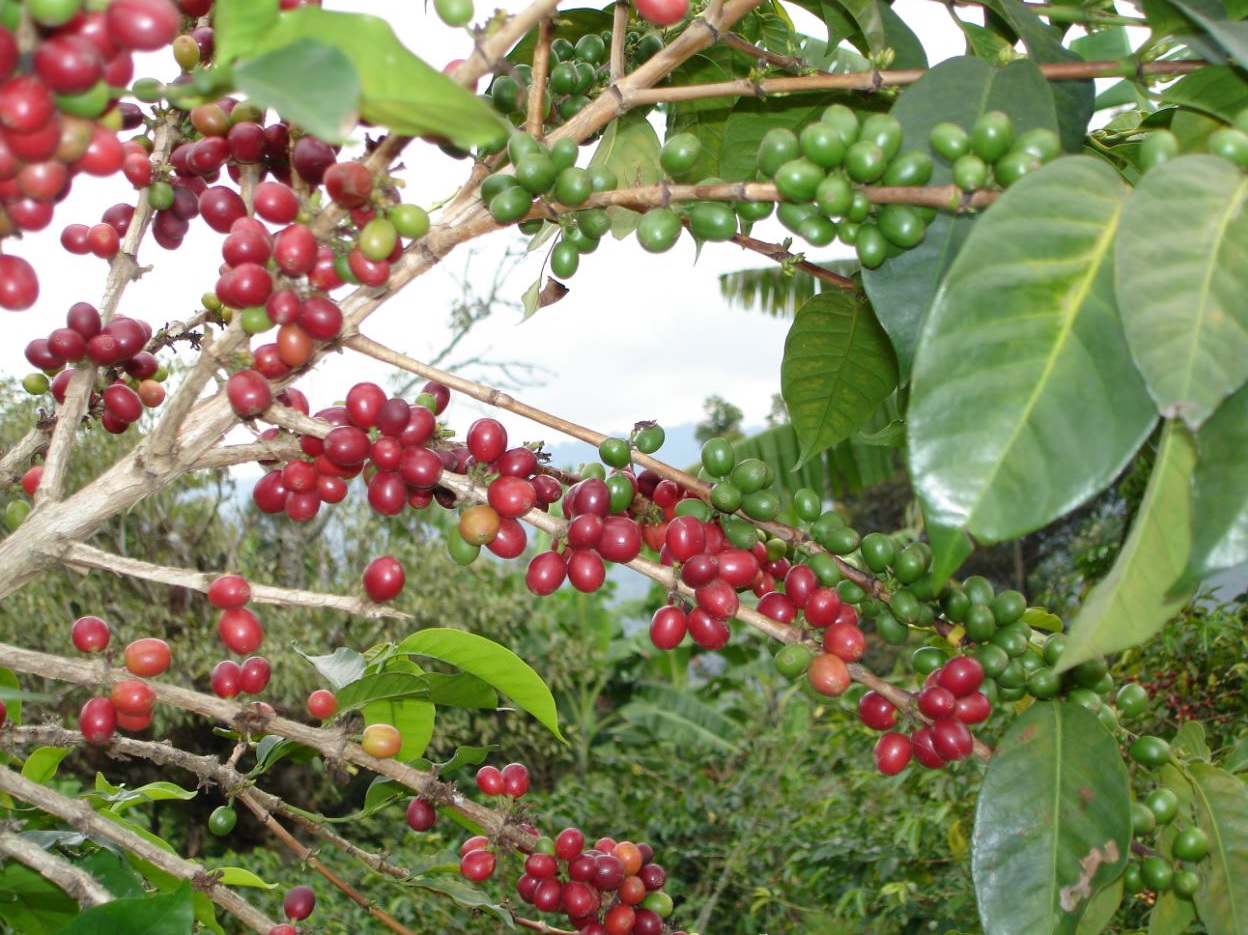
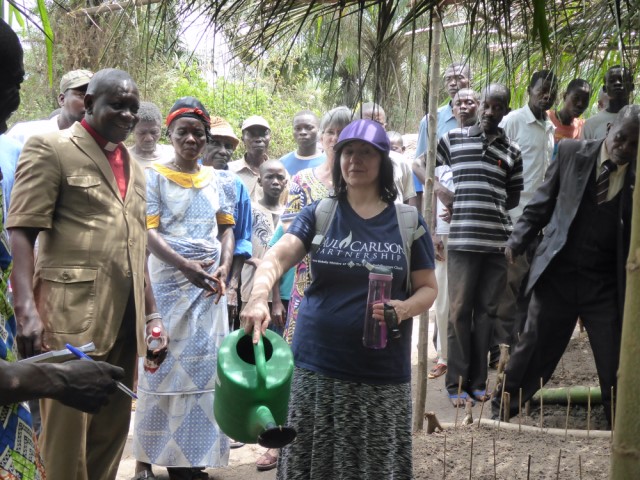

Awesome to see another potential way to create revenue in Karawa. I hope Arabica beans are grown and not just Robusta.
Report This Comment
I hope and pray that this coffee will be organic! I only drink organic at home! Providing organic coffee for our bodies is so important! In the world that we live in we need all the help we can get!
Report This Comment
Jerry,
At our altitude all we can grow are the Robusta trees. Arabica requires a higher elevation, at least 3,000 ft. There was some work done with a cross between the 2 called Arabusta, but I don’t know how successful it was. In conversation with Renee Hale of PCP we learned much more. She explained there is another way to prepare the Robusta beans which enhances the flavor and makes them highly desirable. Per the people following the world coffee market, the demand for Robusta beans is growing. It has grown a lot in Europe and that will be coming to the US. They say that the world market will remain strong for years ahead which is good for our farmers. Actually, the first market they’ll impact is the local one because at present our area imports coffee. Yes indeed! We don’t grow enough to meet the local demand.
Thanks for your interest in our blog and ministry. Blessings.
Report This Comment